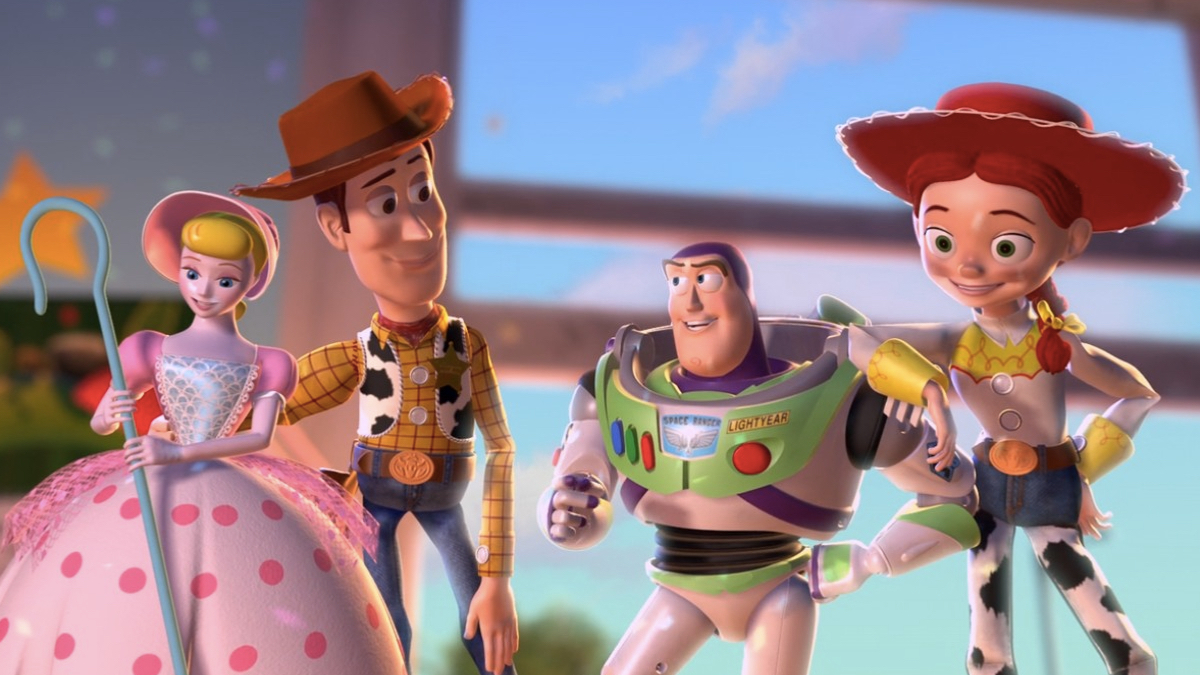
Since the release of the groundbreaking hit Toy Story in 1995, Pixar has enjoyed fame as a powerhouse animation studio with a unique brand of high quality storytelling. But which moments from Pixar’s movies are actually unforgettable?
While Pixar is famously part of the Disney empire, its movies are iconic enough to stand on their own. Whether their stories are about bickering toys, traveling fish, monsters who scare children as a 9-to-5 job, or teenage girls with an ancient family curse, a Pixar movie is an invitation that’s guaranteed to be something magical, funny, and moving all at once.
With so many movies come specific movie moments that might only last a few minutes, maybe even a few seconds, but are powerful enough to remember for a lifetime. Here are 32 of the greatest moments from Pixar’s theatrically released movies.
32. The Long Commute Home (Wall-E)
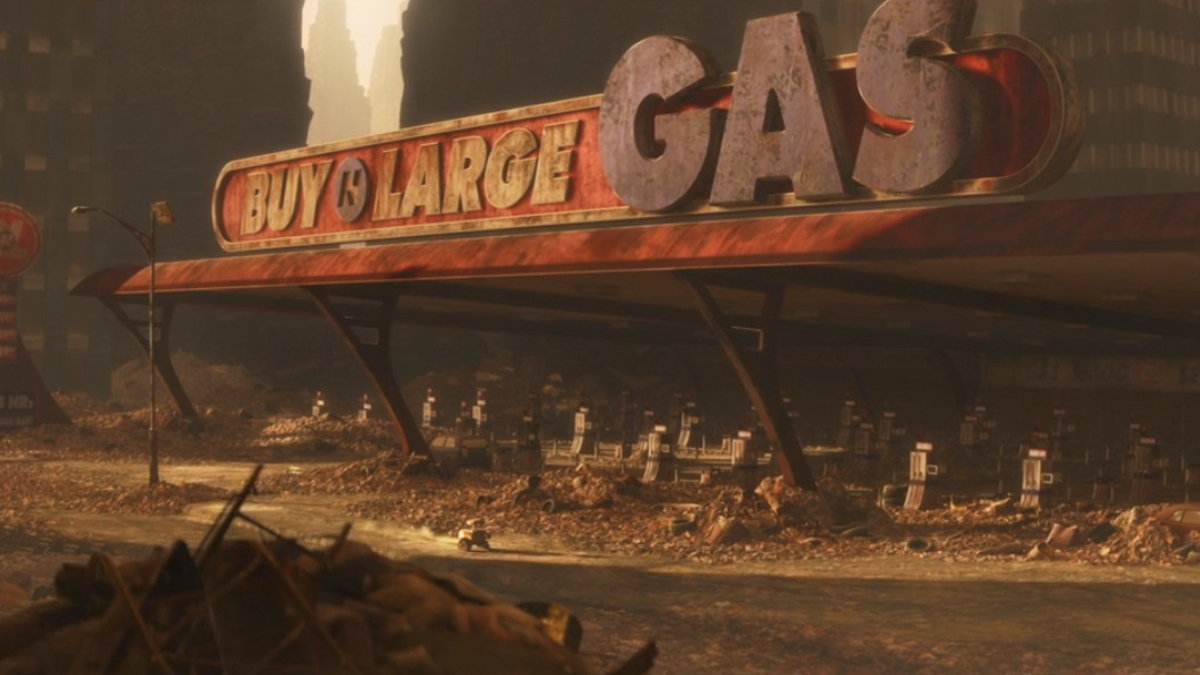
Wall-E is a towering modern classic, an expansive sci-fi romance about an overworked robot tasked with cleaning up a futuristic Earth. The movie kicks off on a harrowing note, which is surprising for a Disney movie. Throughout Wall-E’s long road home, a creeping horror settles over what has become of our planet — burned out, full of garbage, empty of life, and overtaken by a single mega-corporation like a virus. As Wall-E ominously suggests, humans left the planet long ago and left an army of robots meant to clean it up. Only their numbers have dwindled, and all that’s left is a single, lonely unit. Wall-E ultimately ends on an uplifting note, but its opening is teeming with darkness over humanity’s inclination to self-destruction.
31. Meeting the Manticore (Onward)
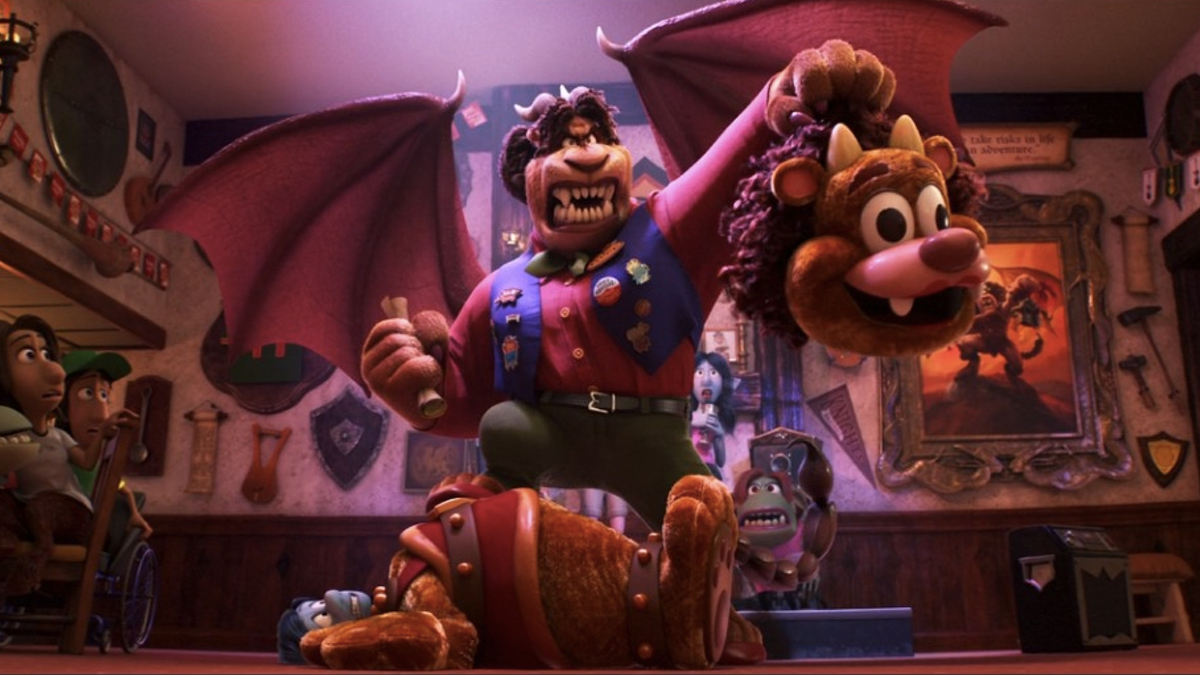
In Onward, Pixar’s homage to fantasy epics and role-playing games like Dungeons & Dragons, brothers Ian (Tom Holland) and Barley (Chris Pratt) prepare themselves to confront The Manticore, an ancient evil beast that legend says can guide them in the right direction — if they survive. The delicious swerve is that in this world where modernity has eclipsed magic, even the Manticore (voiced by Octavia Spencer) has lost her edge, and her tavern is now a suburban family restaurant. No other moment in Onward crystallizes its clever premise than this scene, where the only dangers present are rude bachelorette parties and late food orders.
30. The Bachelorette: Archery Edition (Brave)
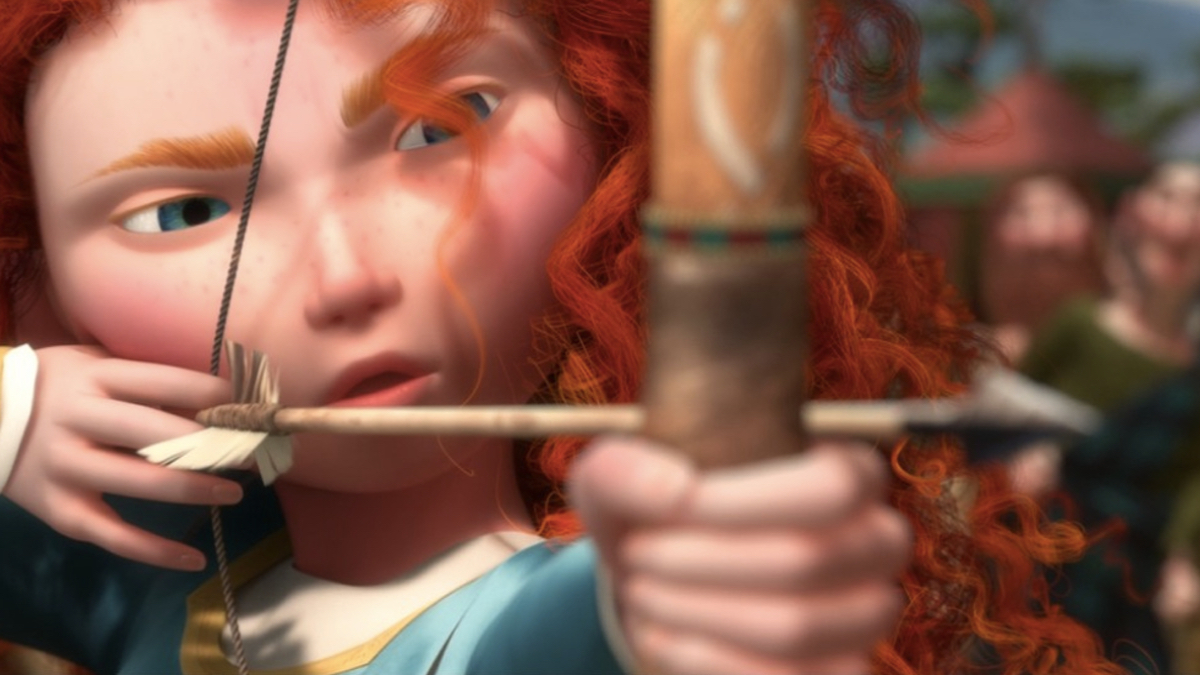
Set in medieval Scotland, Brave tells the story of Merida, the princess of clan Dunbroch, who refuses gender traditions and instead yearns for adventure. Partway into the movie, Merida is forced into the spotlight when Scotland’s not-so-finest archers compete for her hand in marriage. In a scene reminiscent of Mel Brooks comedies, none of the would-be suitors display adequate skill to impress even the common folk, let alone the princess. Luckily, Merida can shoot a bow as easily as she breathes, and she makes fools of everyone – to the dismay of her mother, the Queen.
29. Flik’s Mistake/Hopper’s Wrath (A Bug’s Life)
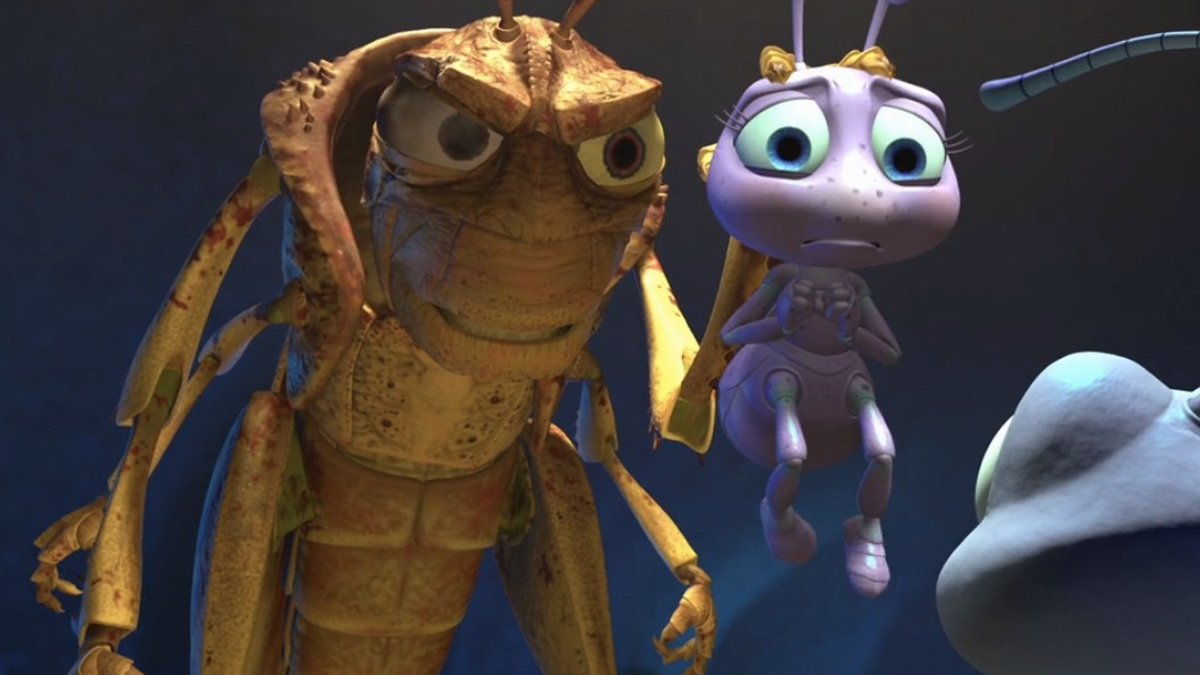
Early into A Bug’s Life, Pixar’s second film after Toy Story, clumsy but well-meaning Flik returns to his home colony before the vicious grasshoppers arrive to claim the fruits of their labor. When Flik throws aside his unstable contraption, it ends up toppling all of the food over a cliff. (Whose idea was it to put that all there?) At some point we’ve all felt like Flik, royally messing up at work and dreading the consequences.
Flik’s mistake segues directly into another stone cold moment in all of Pixar: The introduction of the grasshoppers. Characterized as a mean biker gang, the grasshoppers take their cues from Hopper (voiced by Kevin Spacey), a charismatic autocrat who doesn’t think twice about dangling a child before a feral henchman. Between Spacey’s stirring performance as one of Disney’s most underrated villains and the thunderous staging of the grasshoppers’ forced entrance into the colony, this whole scene is a marvel in how to introduce villains without wasting a single second.
28. Fish Are Friends, Not Food (Finding Nemo)
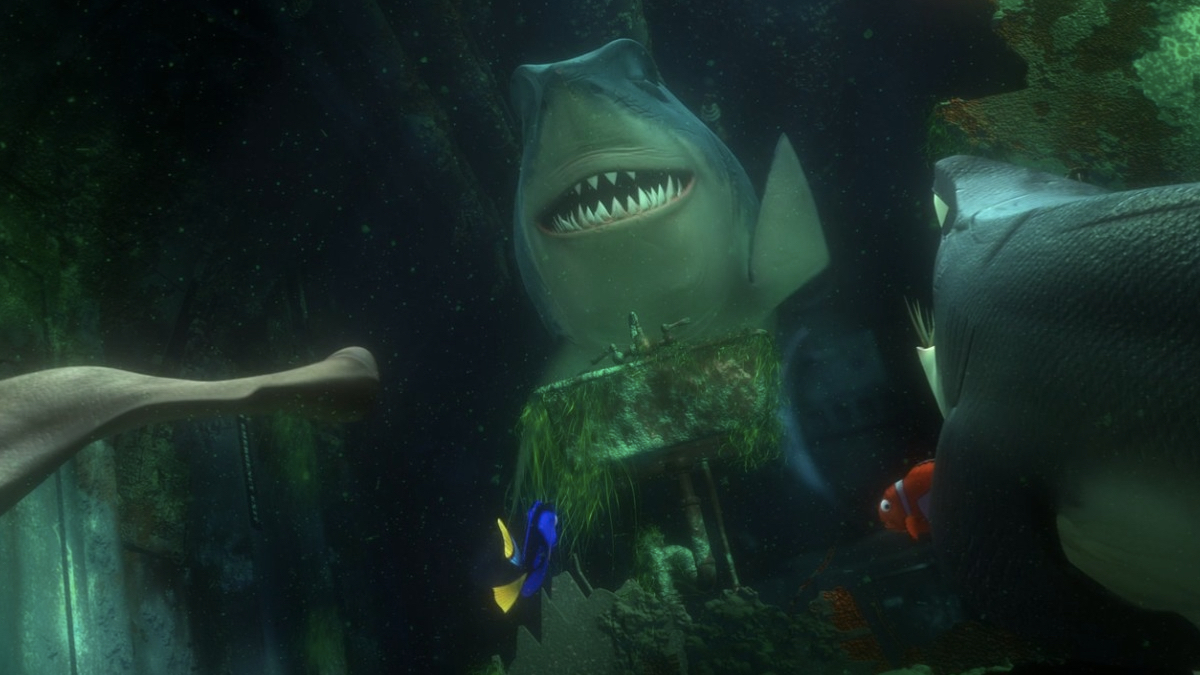
In Finding Nemo, an anxious clownfish searches high and low across the Pacific Ocean to reunite with his son Nemo, and along the way meets a wildy parade of colorful creatures. Among them: A trio of sharks, all with ultra-thick Australian accents, who have pledged to never eat fish again. Children might find fearsome sharks being gentle giants just plain funny, but adults can have their own laugh riot over the filmmakers’ evocation of an AA meeting. Things ramp up for the worse when Dory’s nosebleed gives the biggest shark Bruce a reminder of just how tasty fish are, which kicks off one of the most exciting set-pieces in the entire movie.
27. “You Got Me Monologuing!” (The Incredibles)
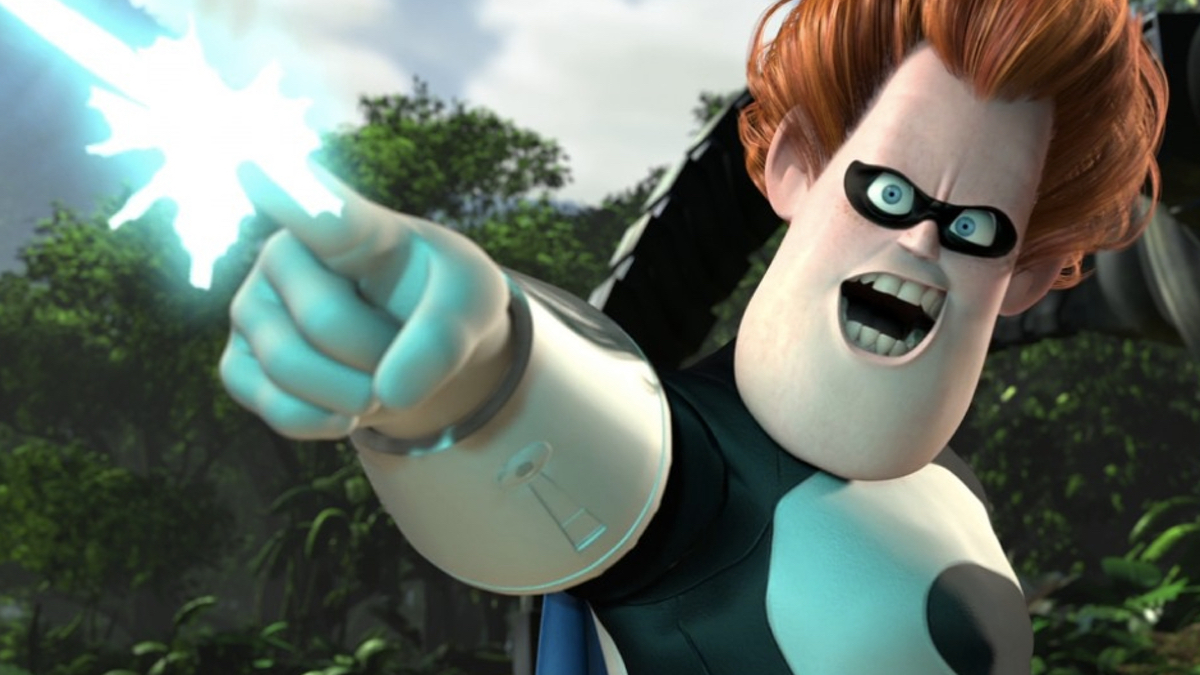
Spoiler warning if you haven’t seen The Incredibles! Towards the movie’s big finale, the villain Syndrome (voiced by Jason Lee) reveals himself as Buddy, who as an adolescent idolized Mr. Incredible and even tried to be his sidekick. But when Mr. Incredible brushed him off, it seeded hatred within Buddy, who embarked on a new life’s mission to kill all superheroes and become a superhero himself, and eventually sell his formula so the whole world can have powers. Syndrome’s big villain speech is a moment that’s hard to forget, one that fully relishes the cliches of superhero and spy fiction while also playing around with them in refreshing ways.
26. “I Am Lightning” (Cars)
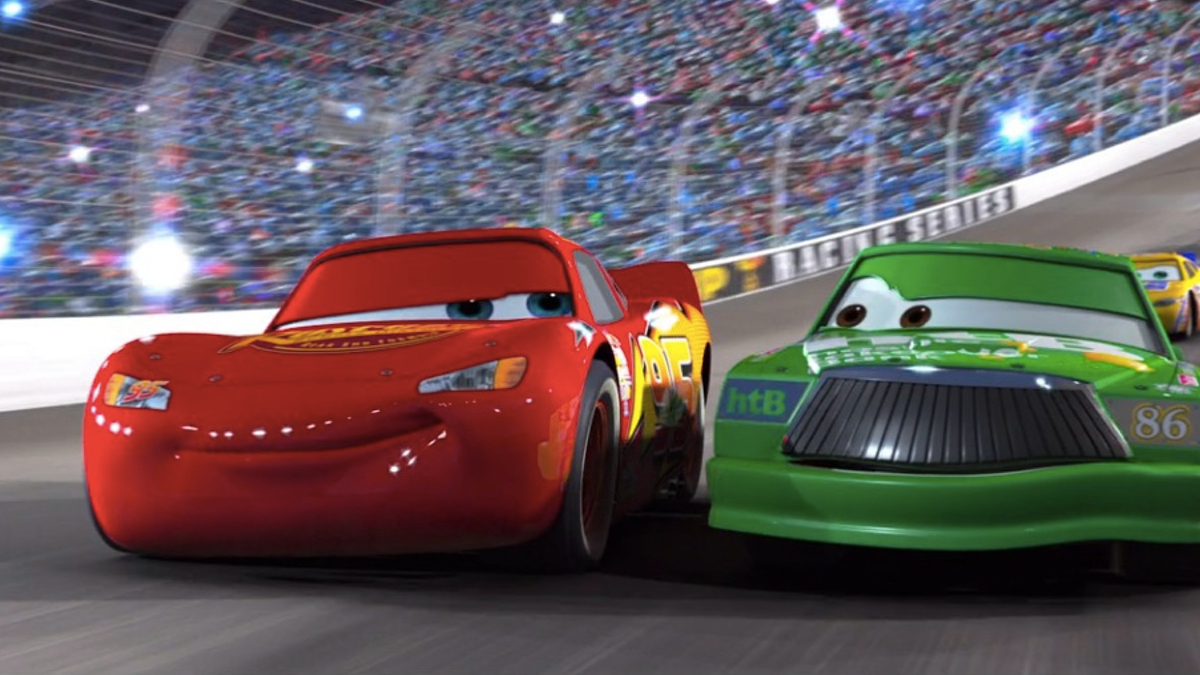
The introduction of Lightning McQueen in Cars is one for the ages. A thrilling extended sequence that not only shows Lightning's unnatural talents on the race track, but his outsized arrogance that makes him almost more of an anti-hero than a protagonist. In this alternate reality where cars and other vehicles are alive, Lightning is a rookie superstar just embarking on the prime of his career when he is humbled to learn the value of working as a team. Between the movie’s sense of breakneck speed and stunning visual fidelity – just see the way light reflects off Lightning’s fire red paint job – there’s no opening that puts the pedal to the metal quite like Cars.
25. Remy Fixes the Soup (Ratatouille)
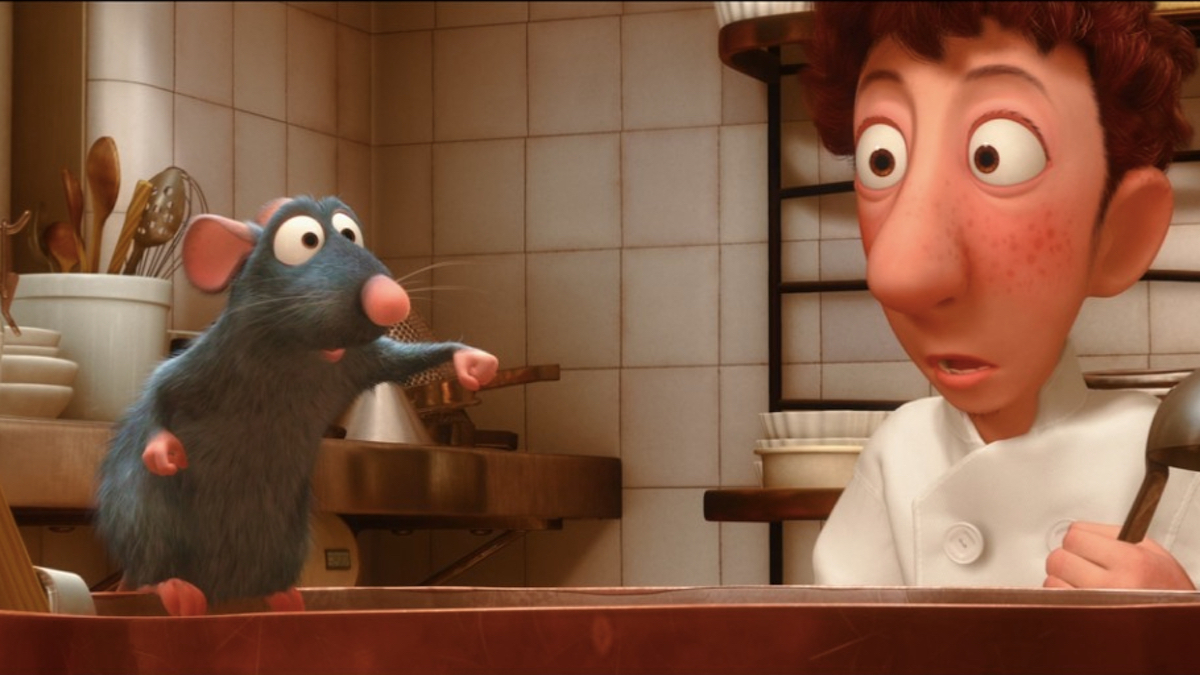
In Ratatouille, comedian Patton Oswalt lends his voiceover talents in the role of Remy, a cuisine connoisseur who also happens to be a rat. When Remy arrives in Paris and finds himself in the kitchen of his late idol’s restaurant, he is horrified when a lowly garbage boy, Alfredo Linguini, messes up some boiling soup. Remy stalls his own clean getaway to fix Alfredo’s mess, beginning an enchanting few minutes where Remy is so overjoyed to finally be in his element. Through gorgeous animation and delectable art design, this early moment where Remy and Alfredo begin their friendship is another unforgettable movie moment courtesy of Pixar.
24. Nemo at Mount Wannahockaloogie (Finding Nemo)
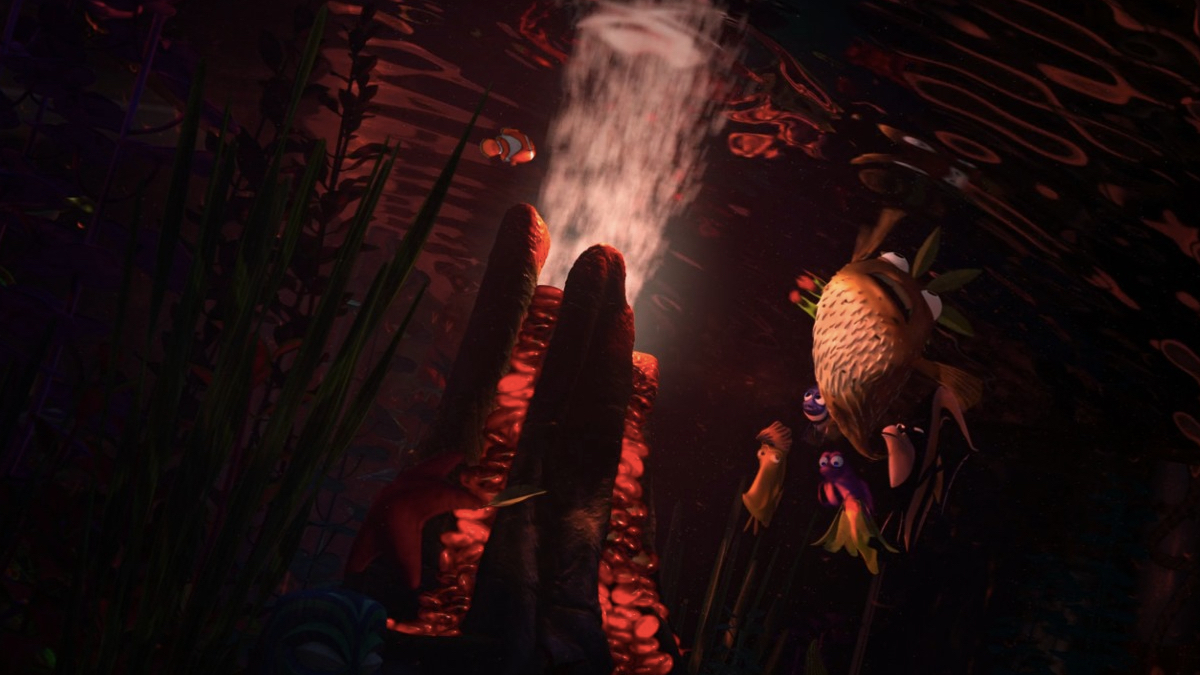
As Marlin searches everywhere for Nemo, the little guy finds himself in the good company of other fish stuck inside a dentist office tank. As they all plot their escape, they welcome Nemo as one of their own, including a charming and hilarious ceremony atop “Mount Wannahockaloogie” (the tank’s decorative fake mountain) in which Nemo earns his new name: Shark Bait. (Hooh-ah-ah!) Besides being ridiculously playful, it’s simply so charming that these grizzled fish, led by the intimidating Gill (voiced by Willem Defoe) take it upon themselves to watch over Nemo until he can reunite with his dad.
23. Joe’s Vow (Soul)
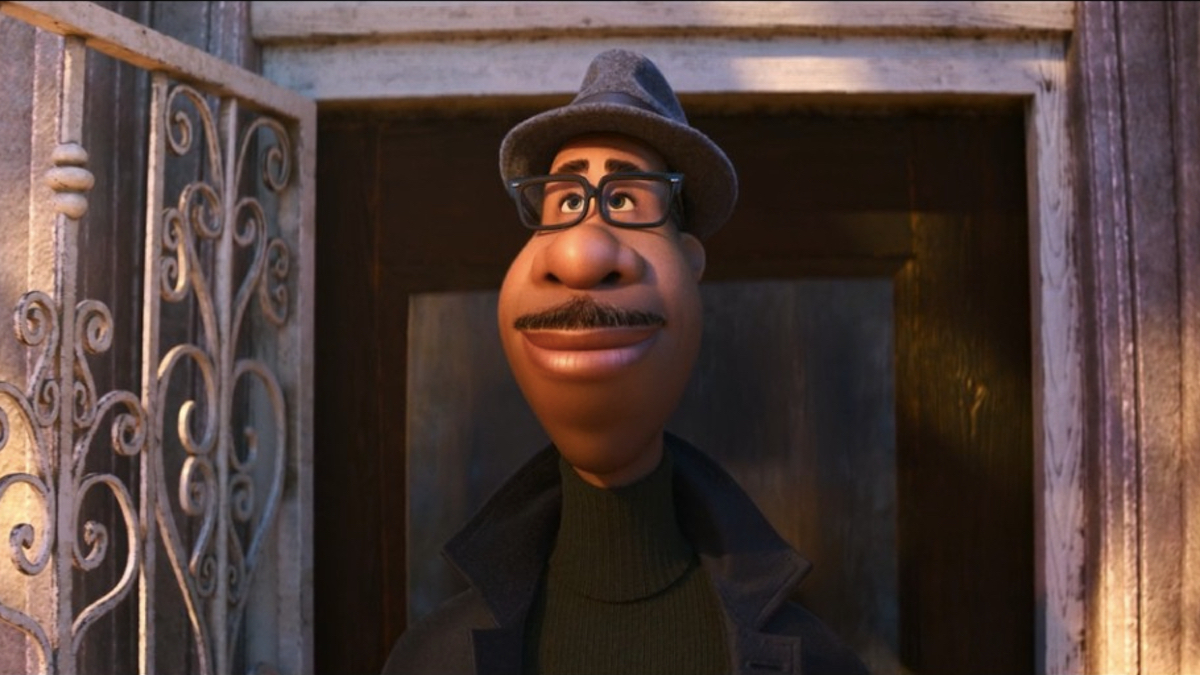
The world took a harrowing turn in 2020 when the COVID-19 pandemic disrupted everyday life and widespread gloom took over. The end of that difficult year saw the direct-to-streaming release of what was Pixar’s then-latest film, Soul, a metaphysical and philosophical animated comedy about a jazz musician named Joe (Jamie Foxx) whose soul is severed from his body. After Joe learns that life isn’t about success but simply living it to the fullest, he is informed by the all-powerful Jerry (Alice Braga) that he is permitted to return to Earth. The final frame of the film sees the morning sun shining on Joe, who walks out of his front door and vows to live every minute from now on. The ending of Soul is easily one of the most reaffirming finales in Pixar history, in how it warmly champions that every moment we have is a gift. In the thick of quarantine and despair, Soul reminded us what living really means.
22. Hopper’s Demise (A Bug’s Life)
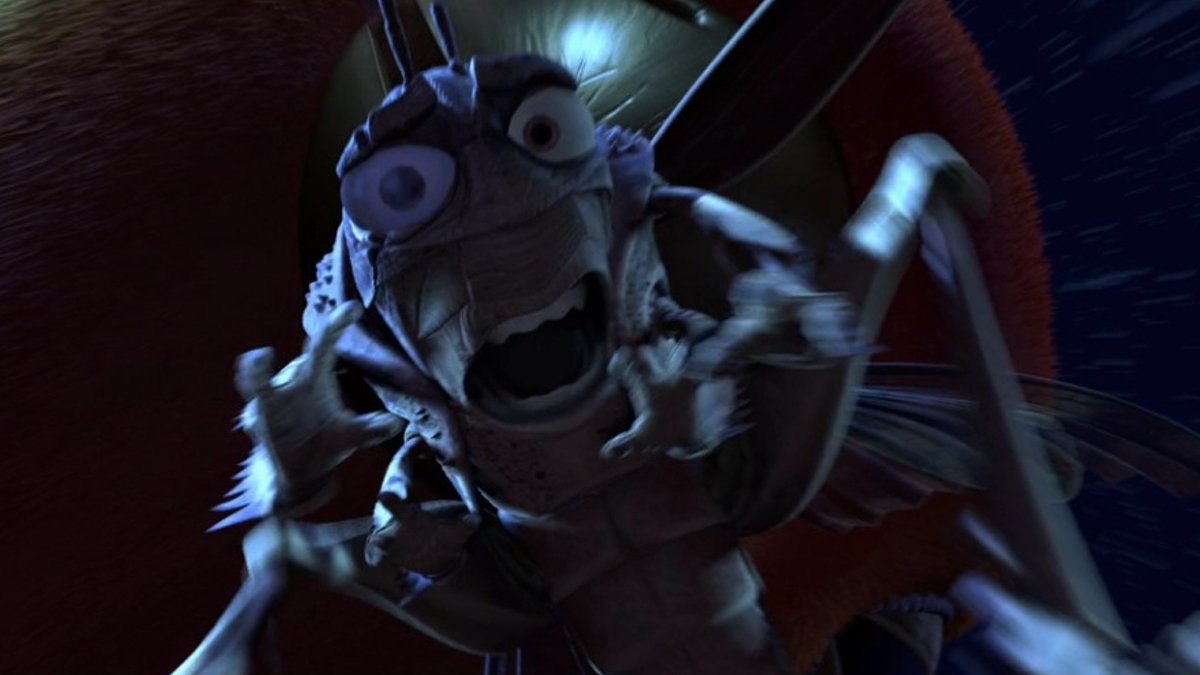
In the climax of A Bug’s Life, a thunderstorm sets the atmosphere where lowly ants stand up for themselves against imposing grasshoppers. As the battle comes down to Flik and Hopper, Flik’s planning pays off when a bird appears out of nowhere and viciously feeds Hopper to its children. The movie establishes early that grasshoppers have their own predators in giant birds, who eerily behave like, well, animals acting out of pure instinct. (It’s in stark contrast to the bugs, who not only talk but appear capable of invention, reciting Shakespeare, and even forming systems of governance.) As far as villain death scenes go in movies for kids, A Bug’s Life is powerfully suggestive in its brutality. It’s not a murder being committed here; it’s just nature.
21. Door to Door to Door (Monsters Inc.)
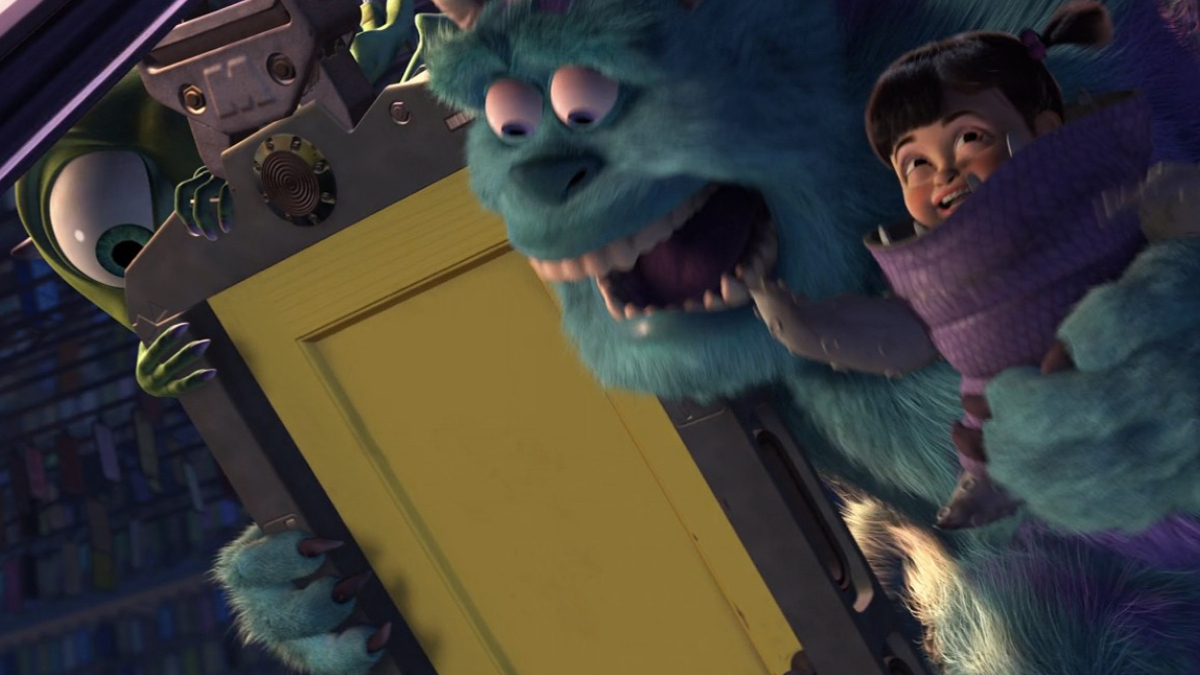
The world of Monsters Inc. operates with a complex system of magical doors that can open to any bedroom anywhere in the world. It’s fitting, then, that the movie’s action-packed climax takes place all around these doors. This may in fact be the biggest set piece ever pulled off in a Pixar movie, at least in terms of geographical scope; characters zip around everywhere from Paris to Japan to Louisiana (where villainous Randall is stranded). But most of it takes place at Monsters Inc. headquarters, with the intimidating heights and blistering speed of the dangling doors creating an obvious reason for these characters to stick close and hang on.
20. Woody’s Restoration (Toy Story 2)
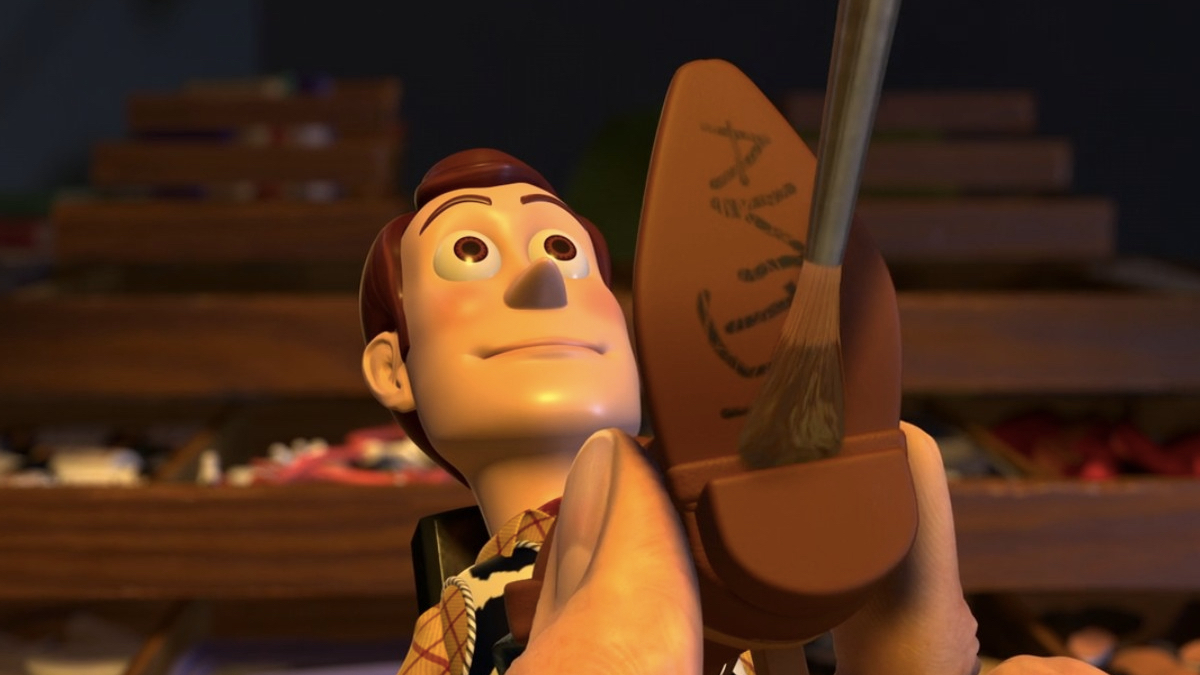
There has never been a more sensuous moment in a Pixar movie ever. After Woody is stolen by greedy toy store owner Al (Wayne Knight) for his collection – and later sold for auction to Japan – Al hires an expert simply named “The Cleaner” (voiced by Bob Peterson) to restore Woody back to his original condition. Pixar’s status as a technically cutting-edge studio is on full display here, as the onscreen textures of plastic, paint, cotton, glass, and more simply pop off the screen. It’s of course heartbreaking to see Andy’s name painted over, but there’s just something about this scene that feels so satisfying. (Fun fact: The character model for The Cleaner was recycled from Geri, an eccentric old man who plays chess in the 1997 Pixar short Geri’s Game.)
19. Meeting Russell (Up)
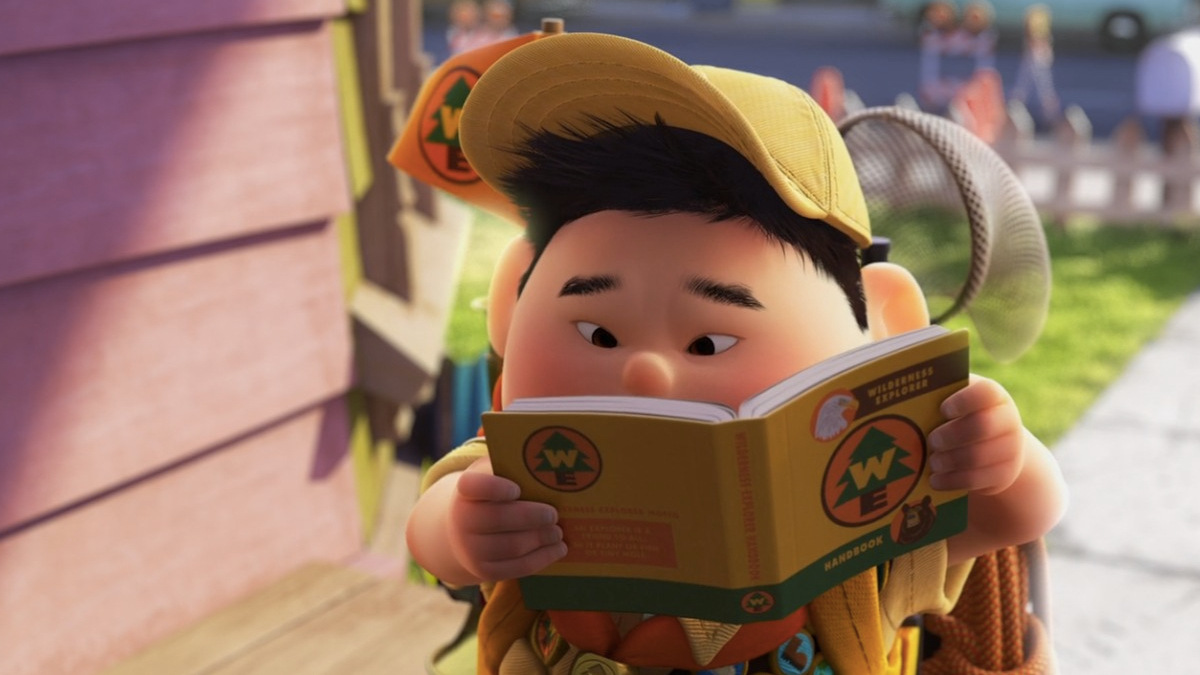
Not long after Up leaves its audience a blubbering mess, the mood gets lighter and breezier with the arrival of Russell, voiced by then-child actor Jordan Nagai, on Carl’s doorstep. Between his adorably rounded design, in-your-face enthusiasm (likely masking the pain of his father’s abandonment), and dogged stubbornness to earn his last merit badge, Russel instantly won a place in all our hearts from his literal close reading of his scouting manual. Props to the movie’s animation team for making Russell act so precious, even when he’s clinging to Carl’s front porch for dear life.
18. Alpha Bravo Establishes Position (Toy Story)
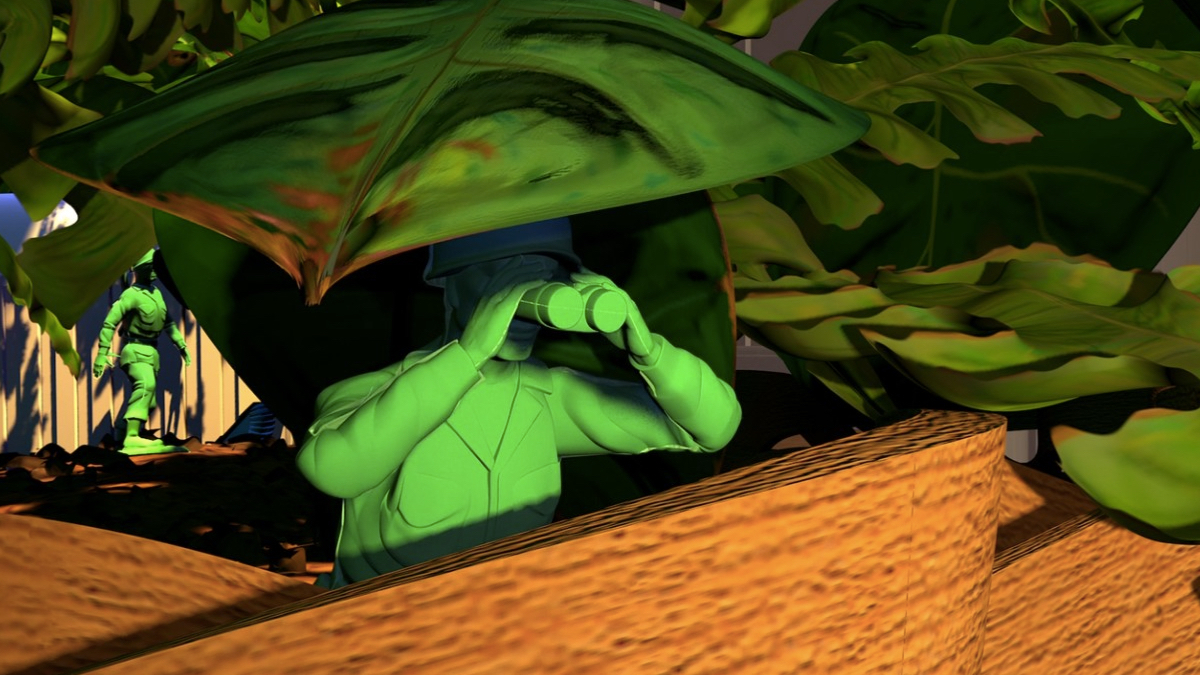
When all of Andy’s toys panic over Andy’s birthday party — which they fear could be their early retirement, as birthdays mean new toys — Woody dispatches a squad of green army men who establish a recon position within a decorative plant. The scene is not only ridiculously fun and clever, but arguably foundational in how it permanently sets expectations of Pixar’s cinematic style. Pixar’s movies are never just about toys or bugs or superheroes. Actually, they use their characters in concert with familiar cinematic conventions (in this case, a war movie) to make something totally new.
17. Riding the East Australian Current (Finding Nemo)
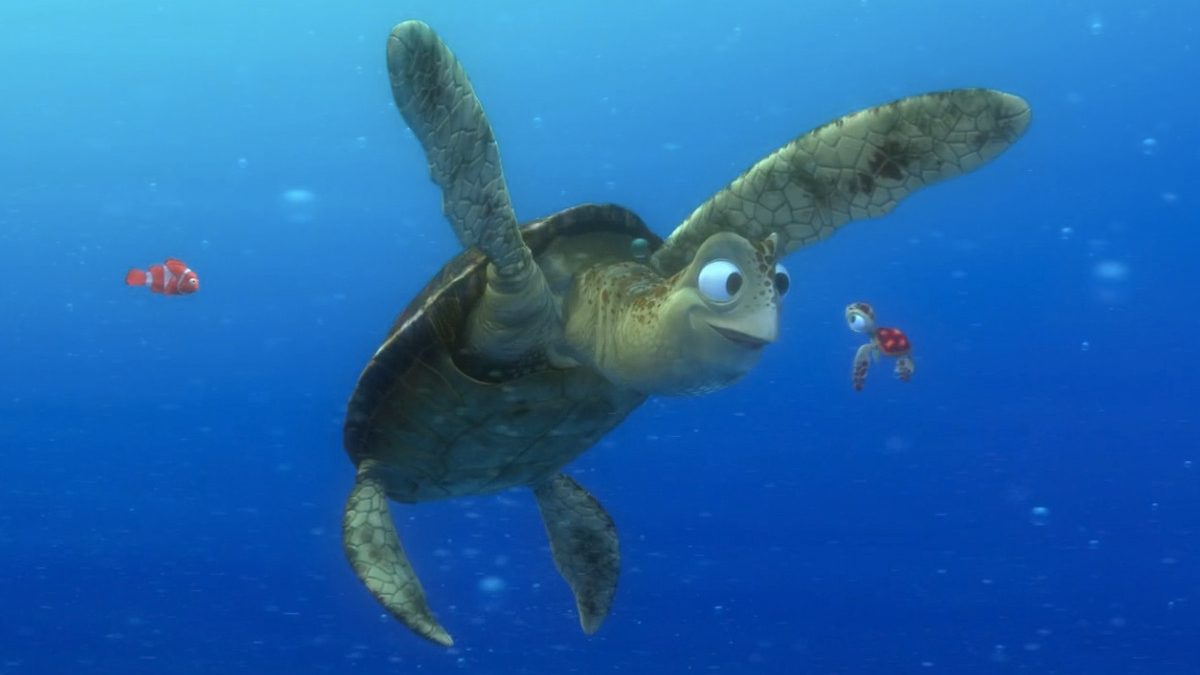
Midway through Marlin and Dory’s journey to find Nemo, the two hitch a ride on the back of Crush, a 150-year-old sea turtle, to ride along the Pacific Ocean’s most tubular undersea highway. Not only is Crush a ridiculously chill dude who talks like a Venice Beach surfer, but the East Australian Current is a visual wonder that makes us wish we could all be fish and swim within its vacuum-like speed. The scene also plays a very important role for Marlin, where he learns that parenting isn’t always about protecting his children, but trusting them that they’ll be okay.
16. Elastigirl’s New Ride (Incredibles 2)
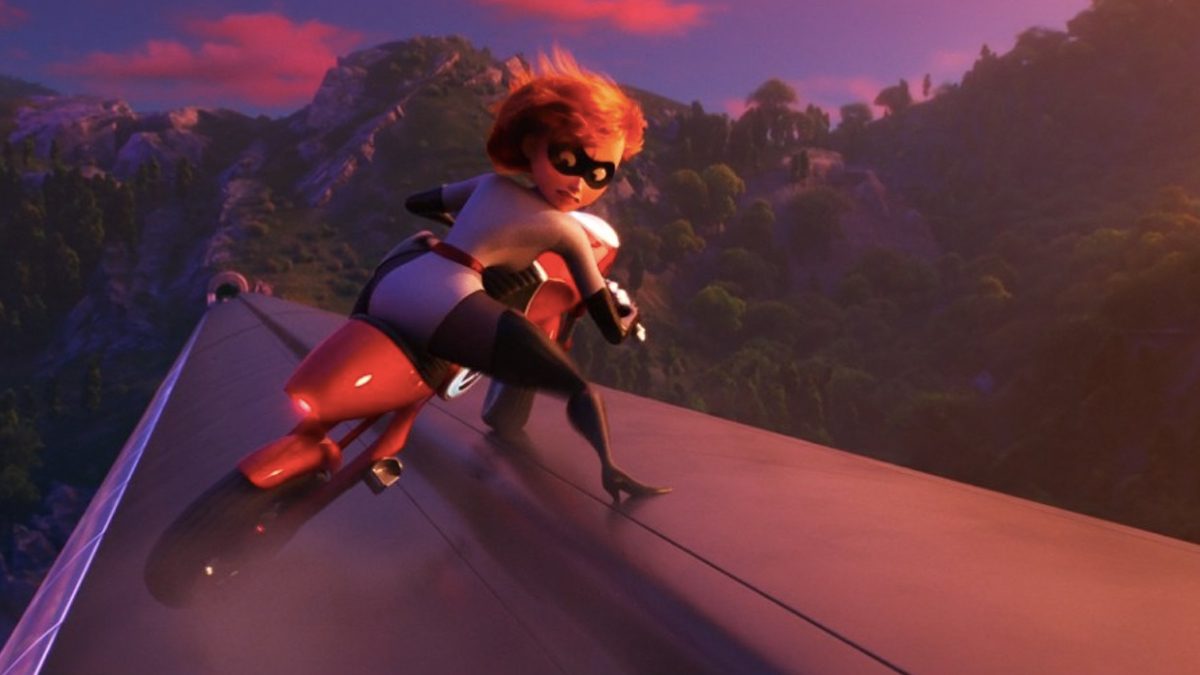
In the 2018 sequel to The Incredibles, Elastigirl is thrust into the spotlight to help rehabilitate the public image of superheroes. In an inventive chase scene that bleeds with Pixar’s signature creativity, Elastigirl takes off in a brand new custom motorcycle that takes advantage of her powers by being able to split in two. Look closely at how the filmmakers use real-world physics to craft a scene that still feels so grounded despite being so impossible. Combined with Michael Giacchino’s pulsating spy-inspired musical score, the scene maintains Pixar’s status as some of the most ingenious animation filmmakers around.
15. To the Skies! (Up)
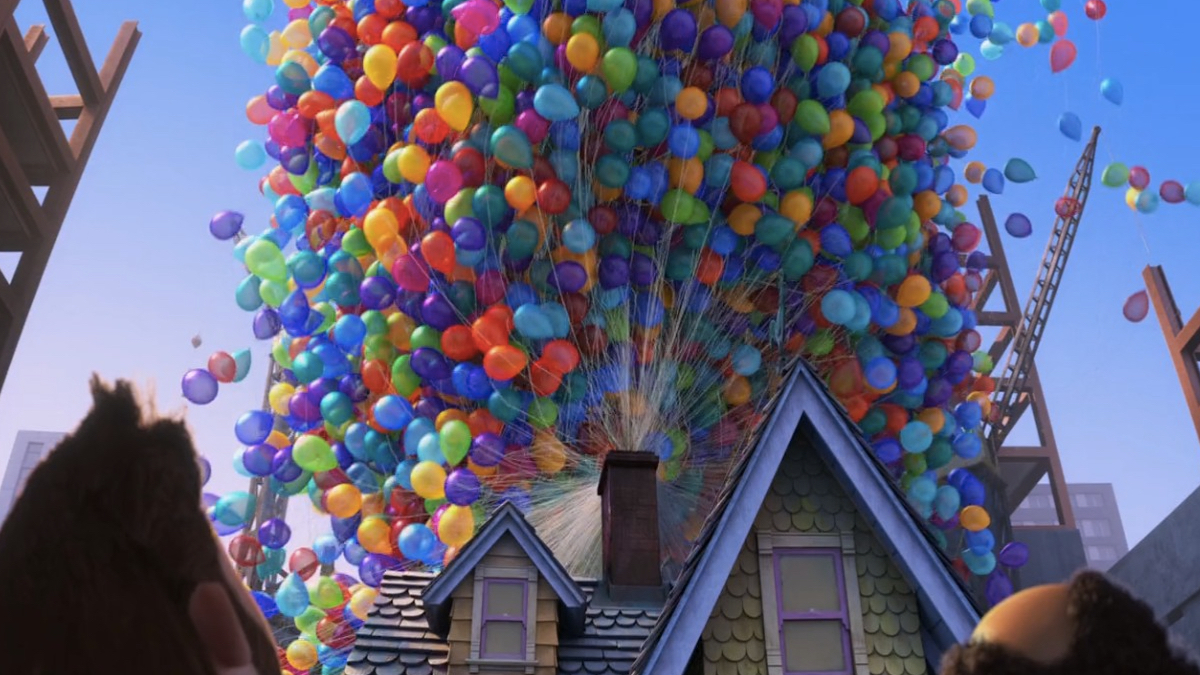
Never mind how much it spits in the face of physics. When Carl’s home takes off and flies away with thousands of colorful helium balloons attached, Up becomes more than a movie about a stubborn old man holding tight to his possessions. It becomes an adventure, one in which Carl learns what it actually means to honor the memory of his beloved late wife Ellie. Second only to Toy Story, Up may have the most distinct visual iconography in all of Pixar’s filmography, and its visual metaphor of a flying home is truly unforgettable.
14. A Dash of Action (The Incredibles)
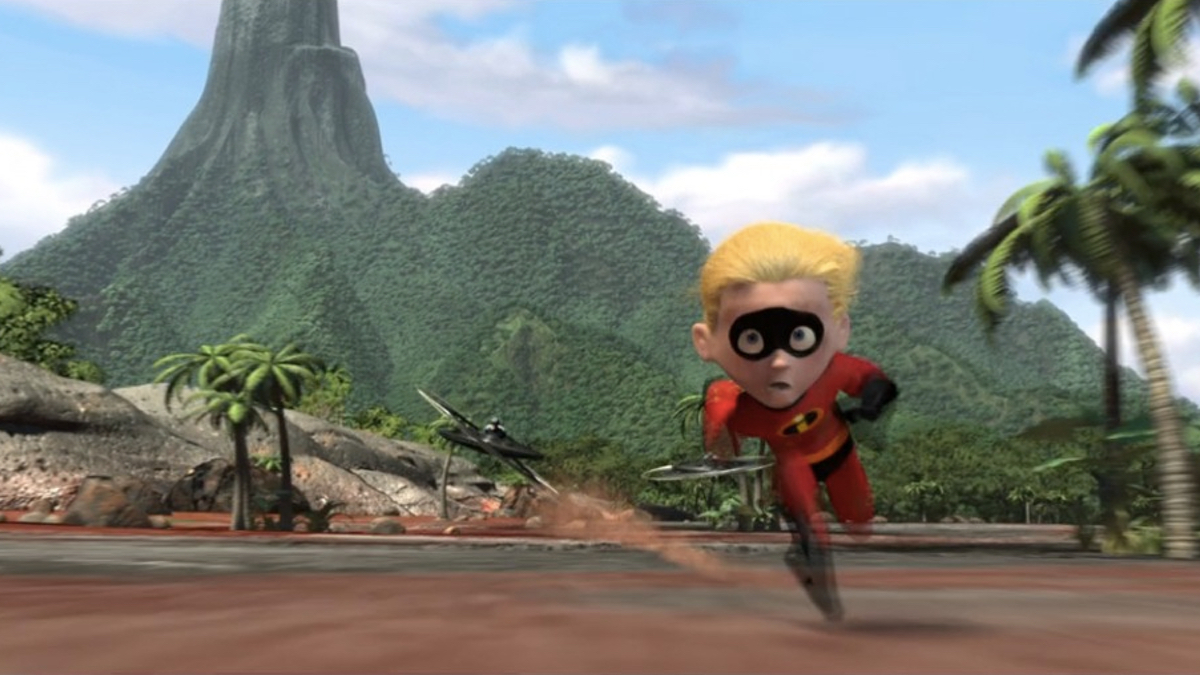
So many superhero movies feature characters running at super speed, but few of them match the sheer excitement of Dash’s big action set-piece in The Incredibles. Instead of slowing down time or getting wrapped up in nonsense VFX, Dash is basically just a sports car on two legs, which fundamentally imbues the scene with a necessary sense of gravity and weight that other movies with super speed don’t consider. Between its crystal-clear direction, rhythm of action, and clever subversion of expectations, Dash’s triumphant moment is enough to give us all a need for speed.
13. Buzz’s Despair (Toy Story)
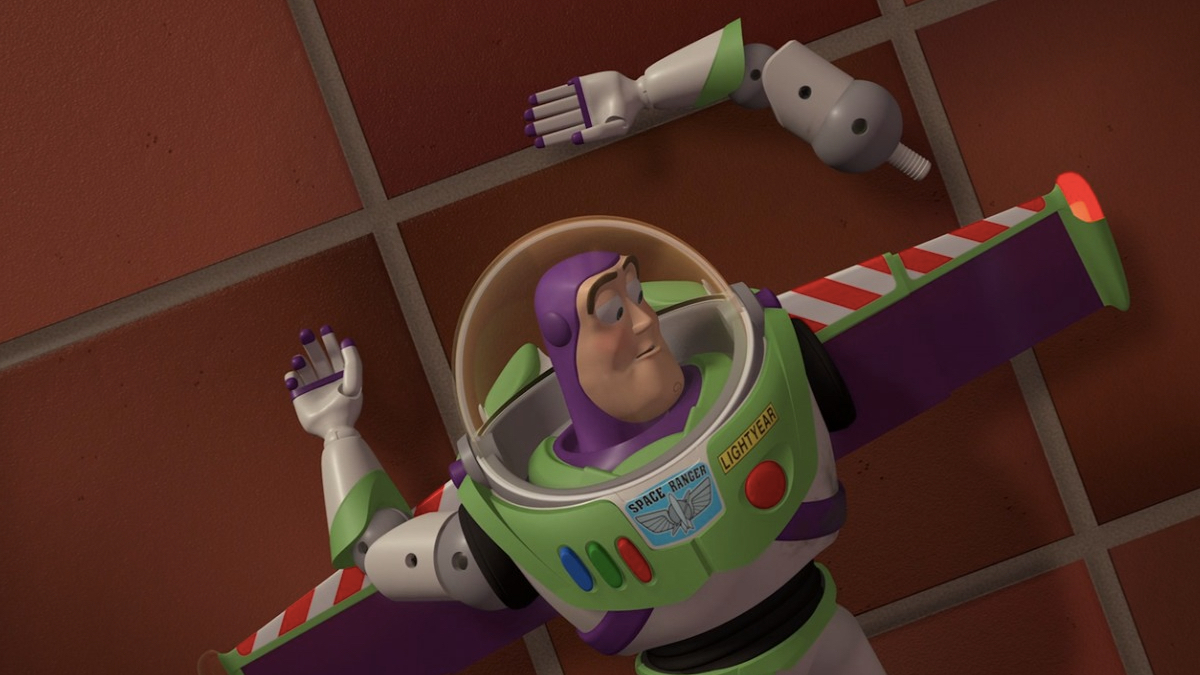
After spending the majority of Toy Story believing he is a real Space Ranger, Buzz Lightyear learns in the harshest way possible what he actually is: a toy. An effort to prove to himself otherwise (TV commercials be darned!) predictably ends in disaster as Buzz literally falls to rock bottom. The scene is yet another example of Pixar being so moving in its storytelling, even with impossibly unreal characters. Buzz Lightyear may be a chunk of plastic, but in this moment, you really feel the pain in his soul.
12. Goodbye to Boo (Monsters Inc.)
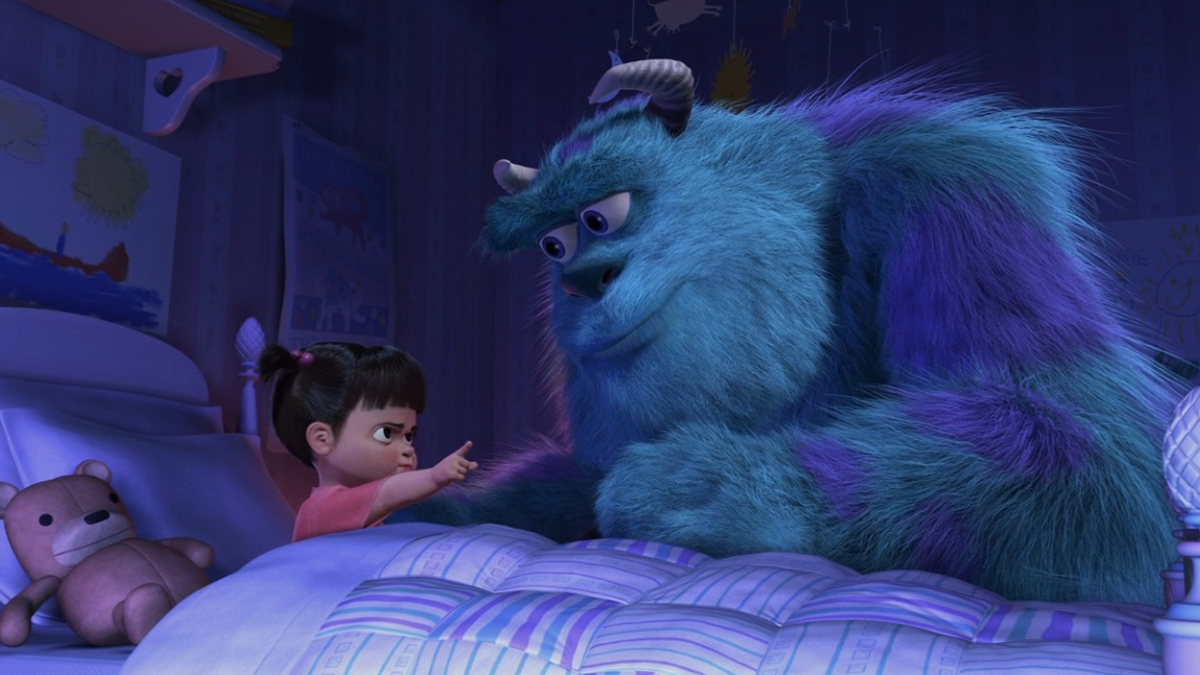
After a long journey of growing attached to the human child Boo (voiced by then-child actress Mary Gibbs), big blue monster and star Monsters Inc. employee Sully (John Goodman) parts ways with her in yet another instance of Pixar knowing exactly how to shatter and shred our hearts in all the right ways. When Boo opens her bedroom closet door and doesn’t find her favorite monster standing there, that’s when we knew that Monsters Inc. was something else.
11. “No Capes!” (The Incredibles)
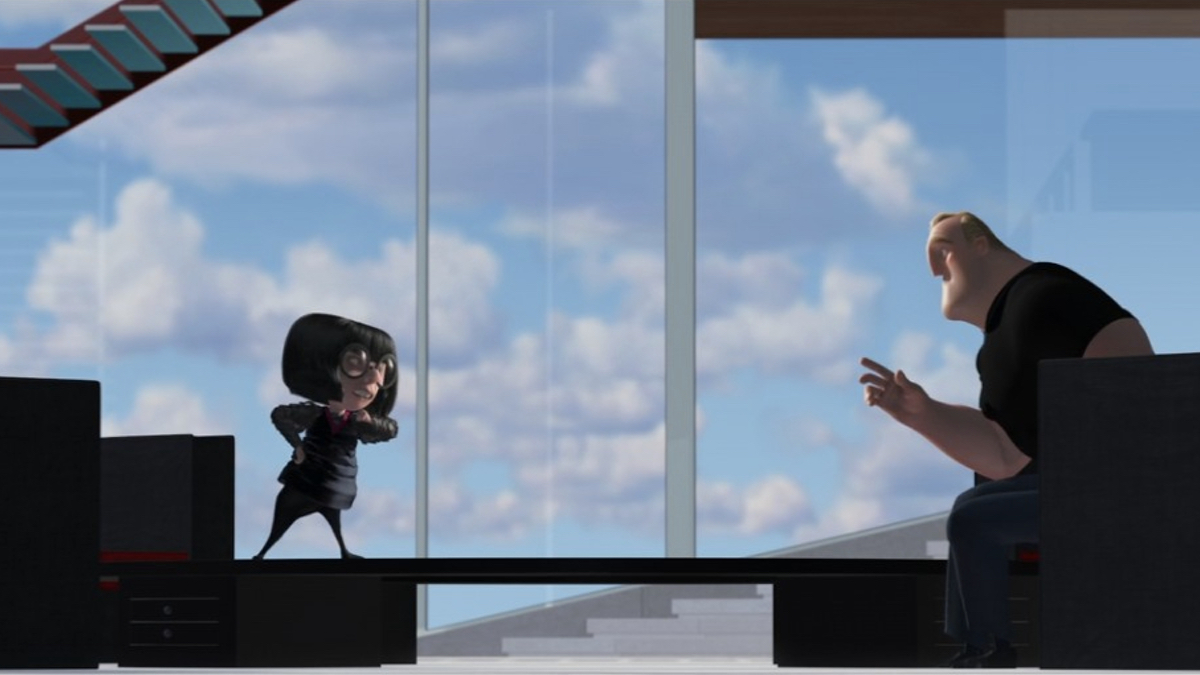
The Incredibles is a stylish movie, in more ways than one. On the surface, it’s a sleek homage to the Silver Age of comic books and spy-fi media. But its characters only ever had drip thanks to fashion designer and costume maker Edna Mode, who you may be surprised to learn is voiced by director Brad Bird. A mixture of Anna Wintour and Q from James Bond, Edna’s introduction memorably paints her as a woman of high taste and high standards, not all of it due to arrogance. Note her staunch rule against capes, which is illustrated through a surprisingly grisly montage of dead superheroes. Edna clearly beats herself up for those mistakes, even if she insists that she never looks to the past.
10. Miguel Sees the Land of the Dead (Coco)
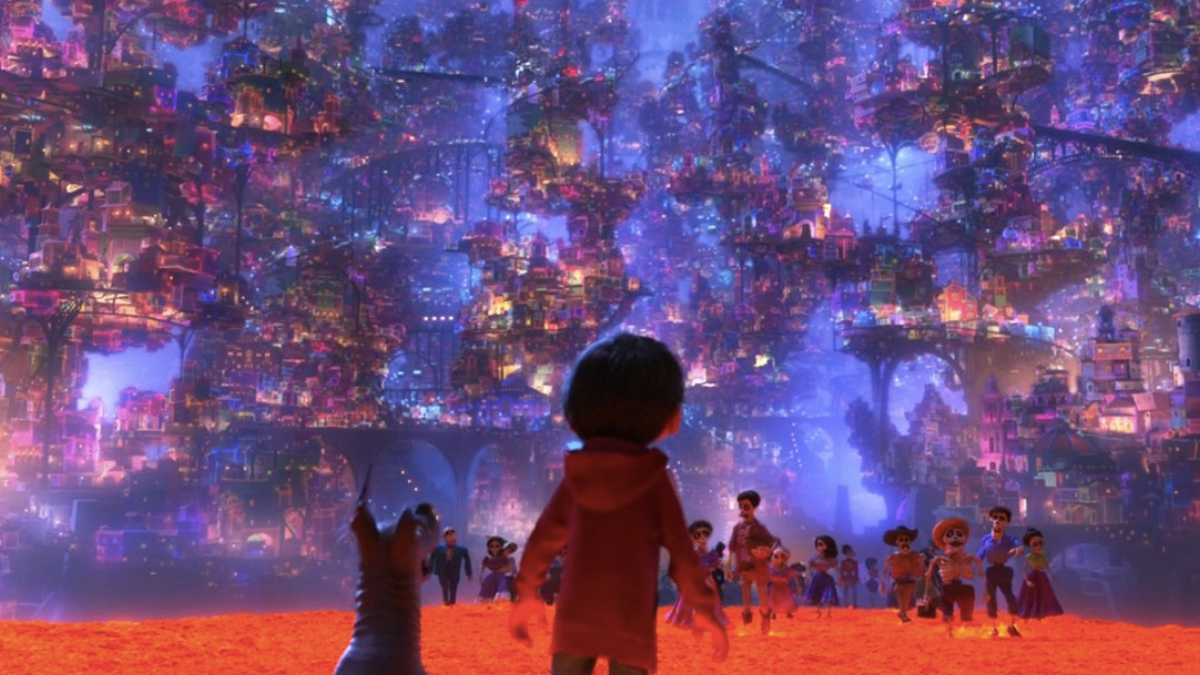
The 2017 musical hit Coco is a dazzling exploration of Mexican folklore, and no moment sells the film’s reverent spirit than when Miguel, a living boy, accidentally finds himself approaching the Land of the Dead. Rather than a place of dread and horror however, the Land of the Dead is a beautiful metropolis brimming with lights, music, and love. Resting atop crunchy glowing orange petals, Miguel is left speechless at the Land of the Dead’s sheer majesty. So are we, as the movie’s breathtaking sights and moving score by Michael Giacchino reaches a crescendo to sweep us off our feet.
9. Learning to Need Sadness (Inside Out)
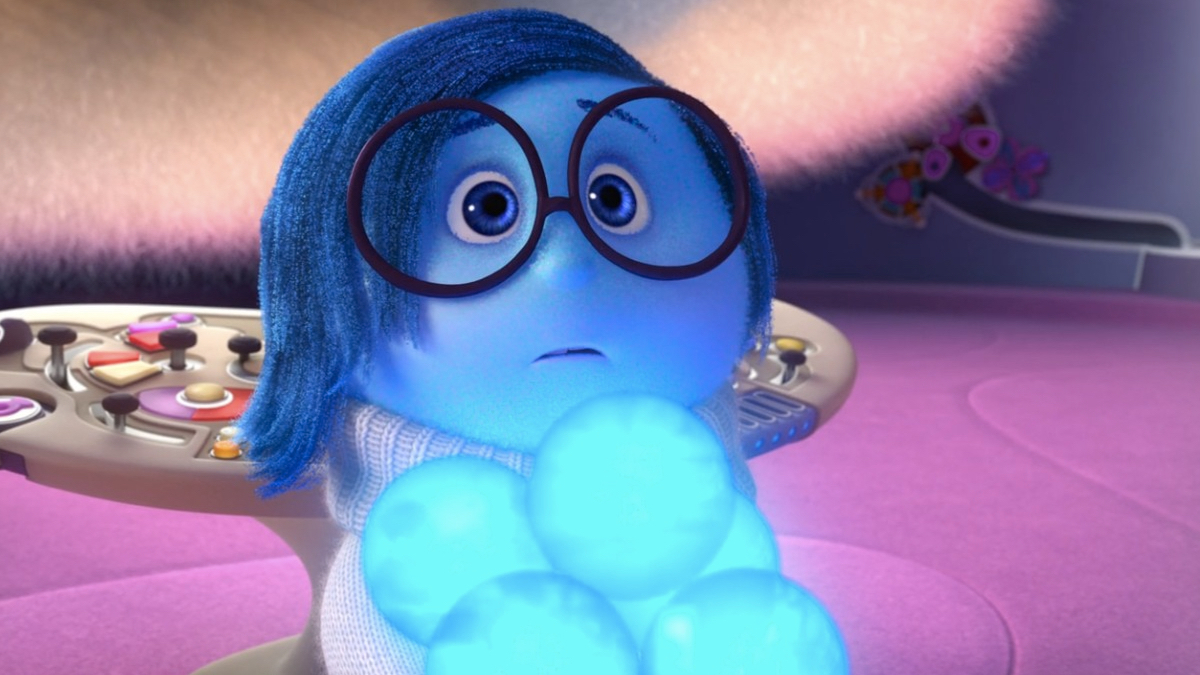
Inside Out spends most of its runtime making Sadness (voiced by Phyllis Smith) a bit of a nuisance. She often gets in the way of the other emotions, like Joy, who make Riley function properly. Sadness herself recognizes her obstructiveness and tries desperately to make herself scarce. But the end of the movie hits like a ton of bricks when it proposes that feeling sad is just as essential as happiness, anger, disgust, and all else that make the human experience so rich. It might not be our greatest moments, but feeling sad reminds us exactly of the things that really matter to us.
8. Dancing in Space (Wall-E)
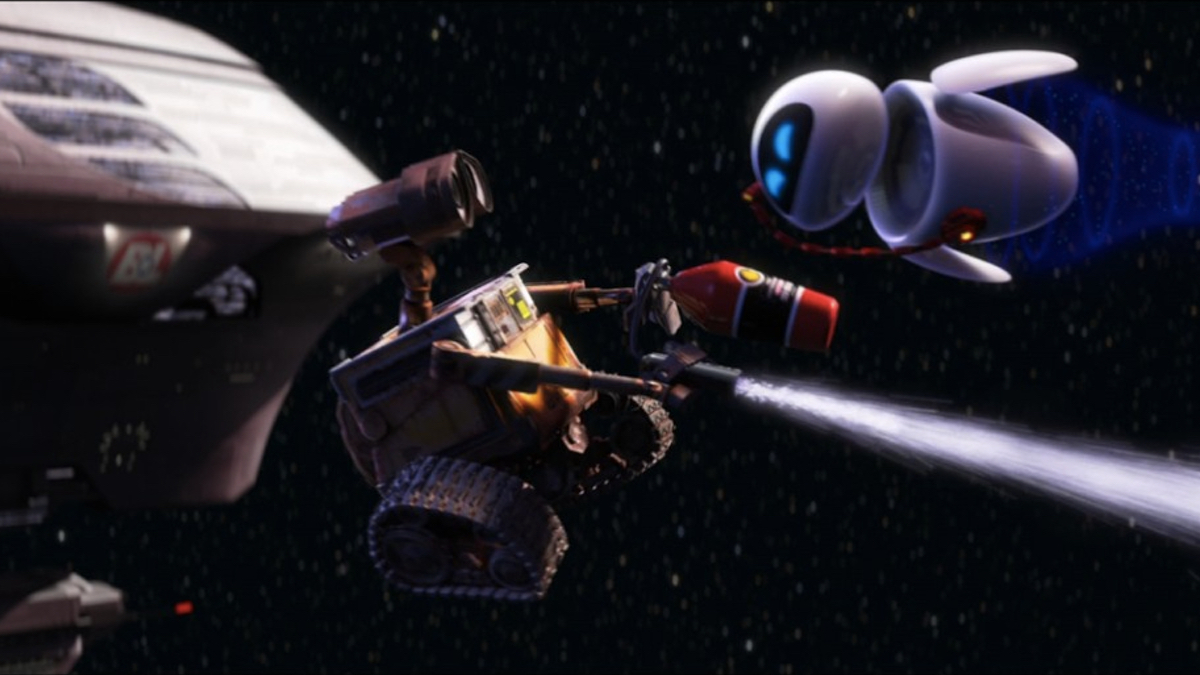
Wall-E (the movie) enters a whole different emotional plane when Wall-E and EVE reunite and dance together in space outside the spaceship Axiom. For so long Wall-E watched a crude VHS tape of the movie Hello, Dolly! and hoped for the day he’d have someone to dance with him. Finally Wall-E lives out his dream in this enchanting space waltz as Wall-E and EVE grow closer as a pair. For hundreds of years, Wall-E worked hard against impossible odds to save Earth. At this moment, this humble hero of humanity finally gets to live out his wildest dream.
7. Rats Take Over the Kitchen/Ego’s Nostalgia (Ratatouille)
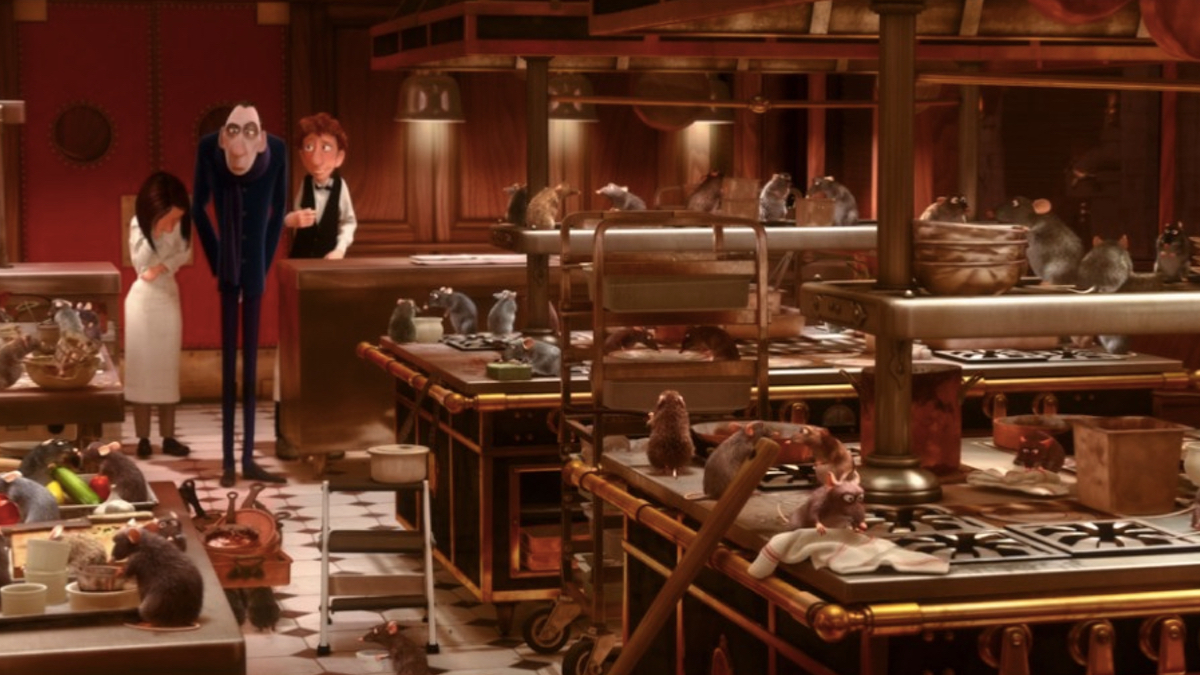
The climax of Ratatouille is either heartwarming or horrifying, depending if you work as a health inspector. With most of Gusteau’s kitchen staff having quit over Linguini’s dishonesty, Remy and his clan of rats come to the rescue to help keep the restaurant going, with Remy coordinating the flow. Everything comes to a head when ruthless food critic Anton Ego takes a bite of ratatouille (the French dish), and is suddenly overcome with nostalgia for his childhood and his mother’s cooking. While there’s the hilarity/horror of seeing rats cook fine cuisine, the thawing of Ego’s cold heart reminds us that no criticism is without inherent bias, and that it’s our life experiences that shape our tastes.
6. Woody’s Retirement (Toy Story 4)
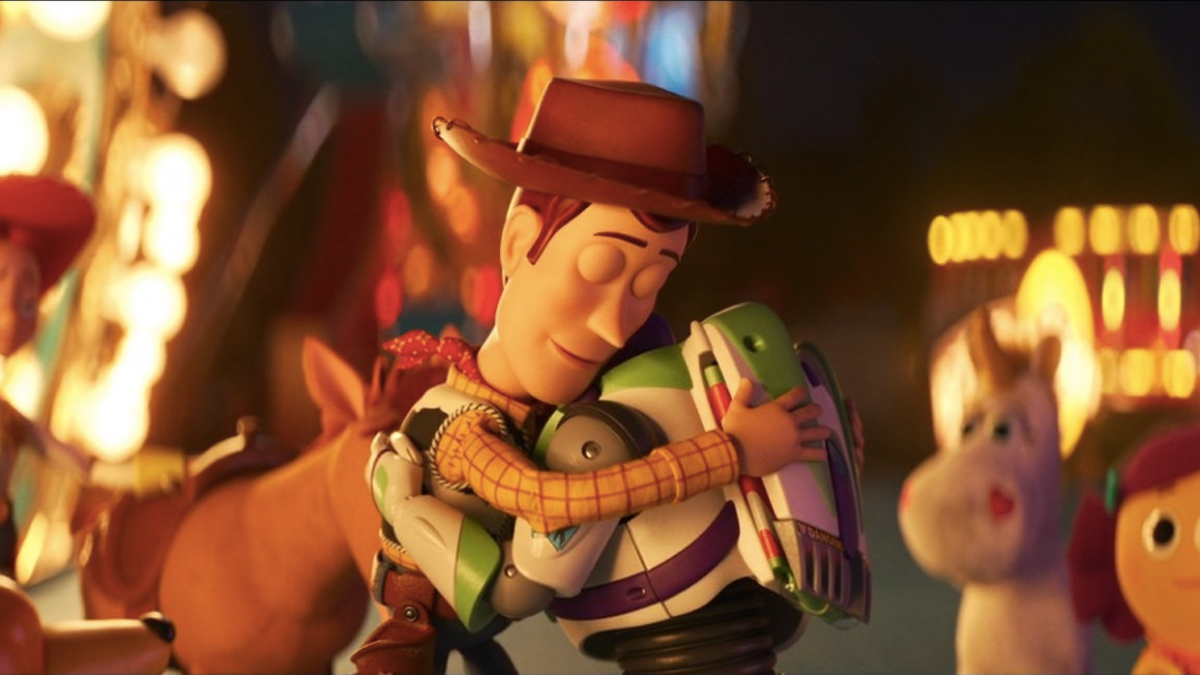
Whatever your thoughts are on Toy Story 4, there’s no question over how beautifully it ended. Where Toy Story 3 ends in a way that suggests new beginnings, Toy Story 4 ends on unambiguous retirement, to hang up one’s boots and enjoy a life utterly free from what you used to be. Woody’s farewell from the rest of the toys that he (and we, the audience) have known for so long is tender and bittersweet, notably illuminated in warm auburn that echoes the feeling of autumn — a season of great change. Never before has the sentiment “You got a friend in me” felt more powerful than at the end of the fourth Toy Story.
5. Into the Fire (Toy Story 3)
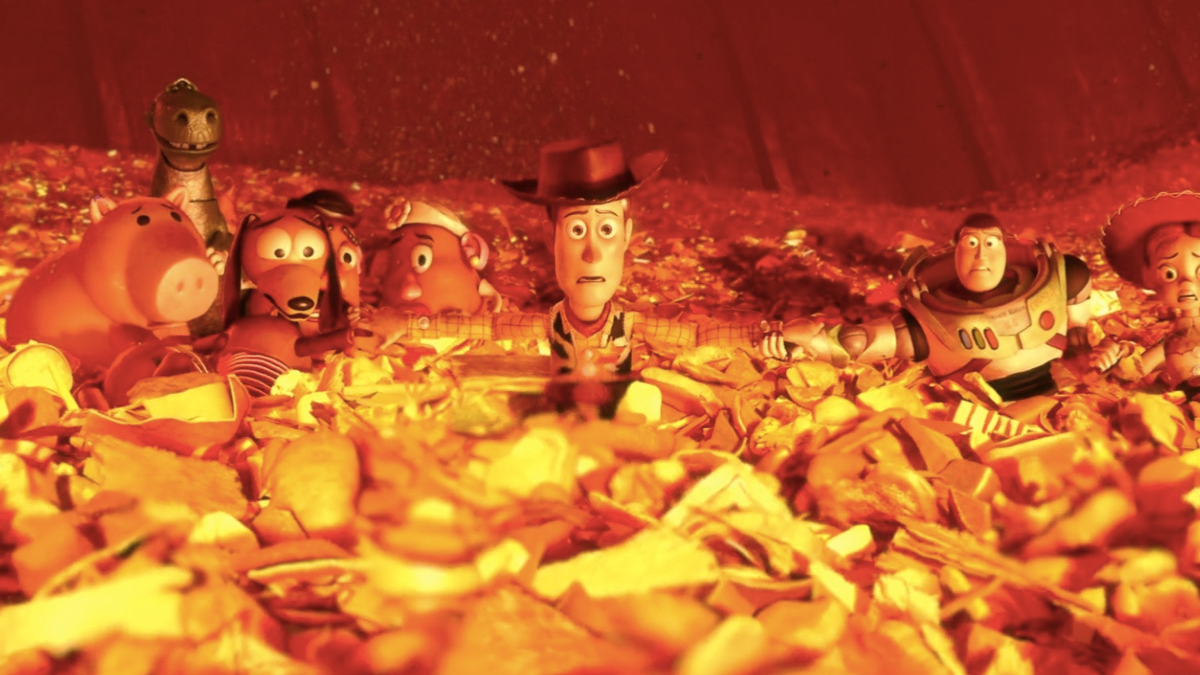
One of the darkest moments in Pixar movie history happens towards the end of Toy Story 3 when Woody, Buzz, Jessie, and the rest end up in a trash compactor and slowly approach a fiery doom. For the first time in the series, nobody, not even the normally clever and determined Woody, has an idea how to get out of dodge. As the raging fire inches closer, Andy’s precious toys join hands in silent acknowledgement that the only mercy in the moment is that they’re facing the end together. Of course they are saved at the eleventh hour by a most helpful group of aliens, whose almost religious praise of “The Claw” actually feels like salvation. But before they came to the rescue, Toy Story 3 actually convinced its audience that it was going to do the unthinkable.
4. Singing to Mama Coco (Coco)
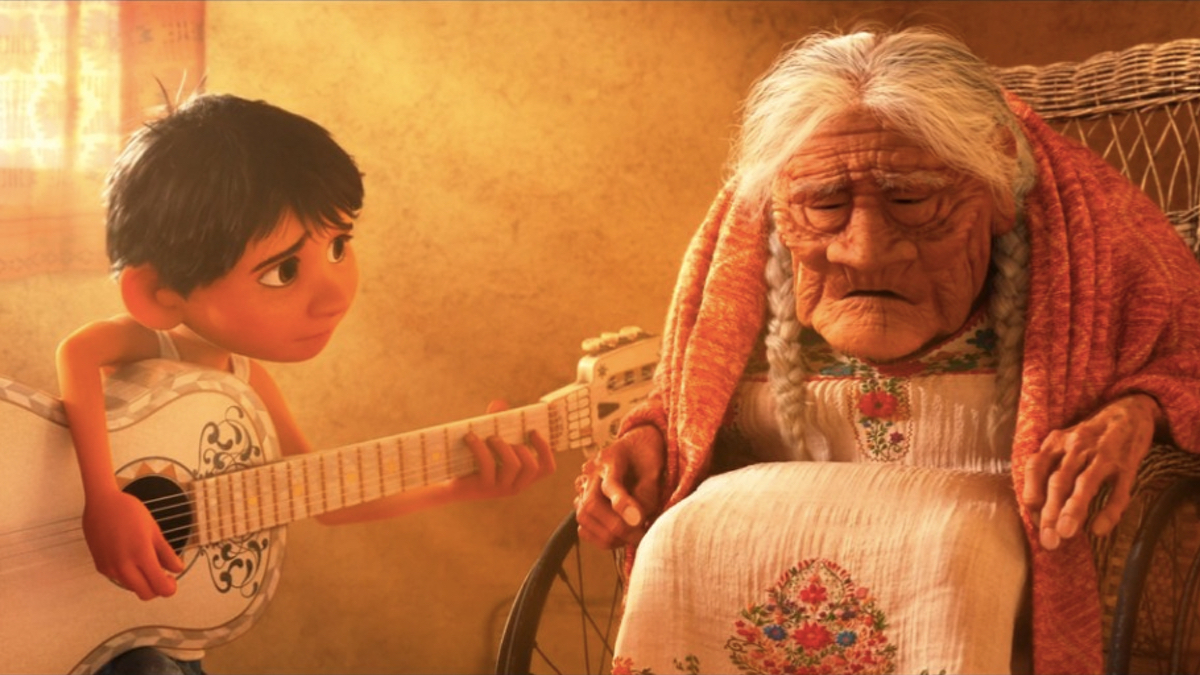
In Coco, when Ernesto de la Cruz (Benjamin Bratt) sings “Remember Me,” it’s full of instrumentation and bombast that betrays the way its real composer, Miguel’s ancestor Hector (Gael Garcia Bernal) intended it to sound: tenderly. It’s no surprise then that when Miguel sings it softly for his great grandmother Coco, she suddenly awakes and remembers the way her father sang to her. In this emotionally-charged movie about the overwhelming powers of memory, music, and family love, bonds are strengthened across generations as Miguel helps Mama Coco remember just how much her father meant to her.
3. “When She Loved Me” (Toy Story 2)
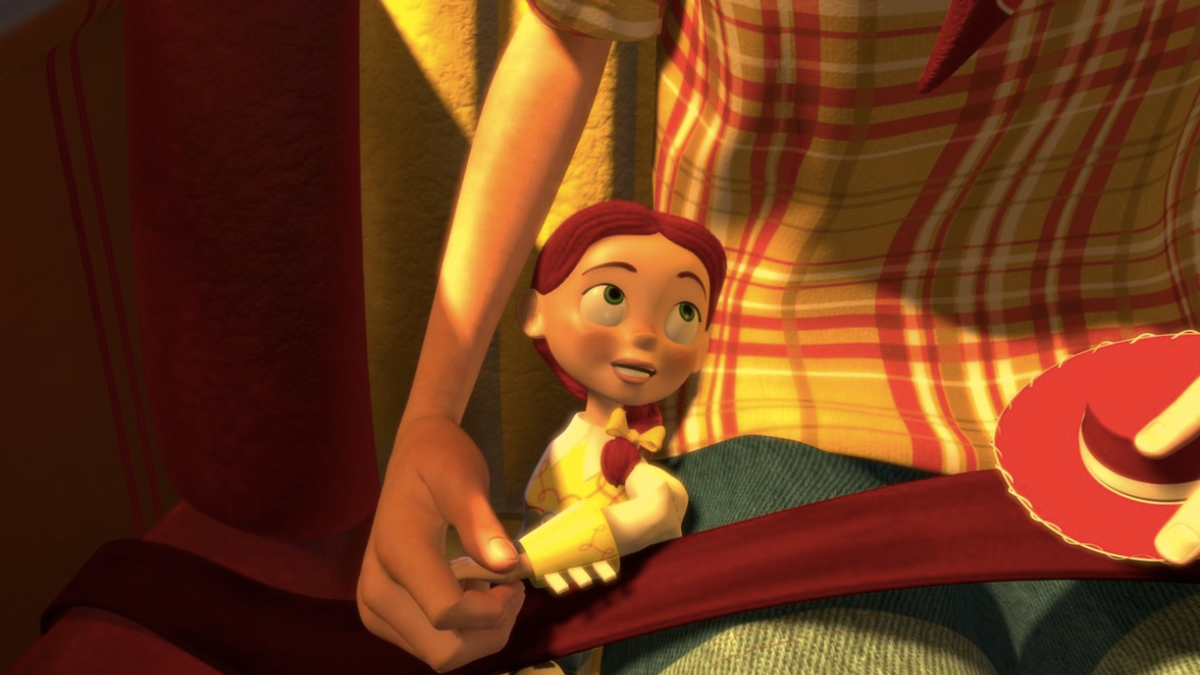
While the name “Andy” means a great deal in the world of Toy Story, the name “Emily” brings up more complicated feelings of heartbreak and abandonment. When cowgirl Jessie recalls to Woody her own past with Emily, the wistful voice of Sarah McLachlan (singing the original song “When She Loved Me”) colors a sun-dabbled montage of a little girl who is so in love with her beloved cowgirl doll — until the day she isn’t. As true as the sun sets, so too do children grow old and quickly move on from the things that once gave them joy. There’s nothing malicious about Emily donating Jessie. Just the ephemeral nature of toys and childhood.
2. Wall-E Meets EVE (Wall-E)
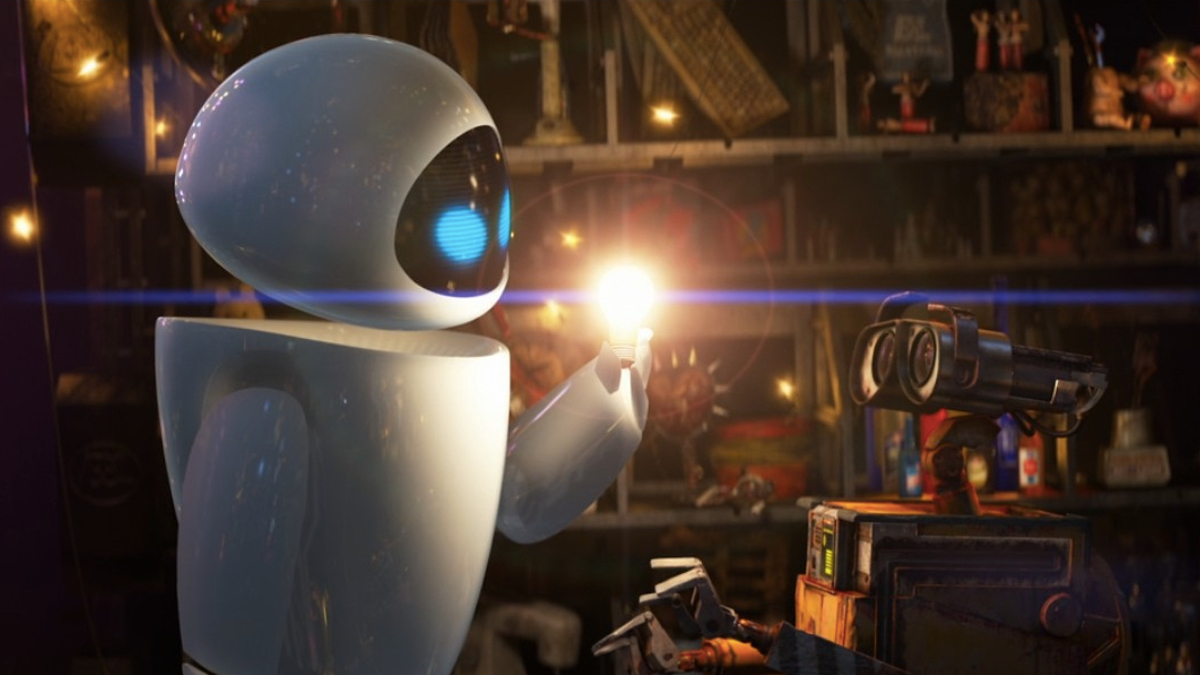
Wall-E is truly a masterclass of animation, being a multi-dimensional romance where two characters barely say anything coherent yet their actions speak volumes. When Wall-E first meets the cutting-edge EVE, who is on a mission to find evidence of vegetation on the now-desolate Earth, our hero is totally smitten. When a sudden storm arrives, the two take shelter in Wall-E’s humble makeshift home, where his collection of trinkets gives EVE a glimpse of an Earth from so long ago. When EVE enters abrupt hibernation after collecting a small plant, Wall-E hopelessly and adorably — and maybe just a little bizarrely — keeps their date going. A romance unlike anything before or since, Wall-E earns its reverence as an alarming activist sci-fi with a heart.
1. To Infinity, and Beyond (Toy Story)
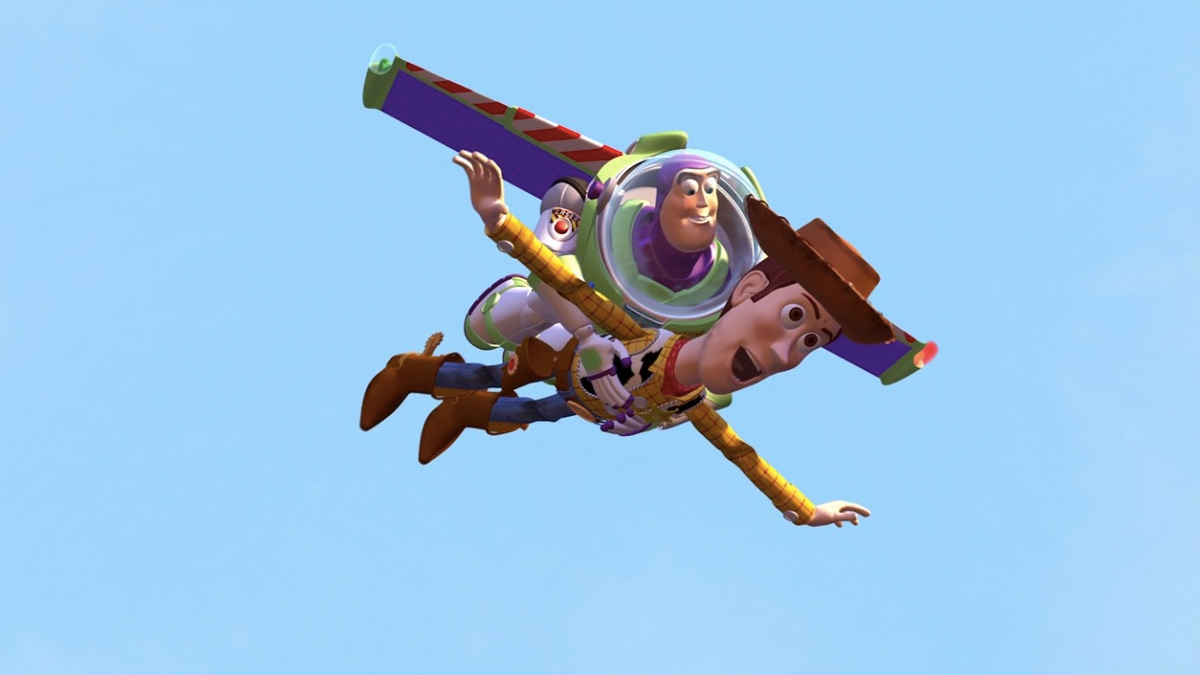
Picture it: It’s 1995. This fancy studio no one has really heard of before has just released a cutting-edge movie that is fully computer generated. You can’t believe cartoon characters can look like this. What’s more, this film about talking toys is somehow incredible, being so full of humor and personality and inventiveness. And here it is, the climax. What is happening is a bunch of toys are trying to get into the back of a moving truck. But the story it’s telling is one of loyalty, companionship, wits, and love, all wrapped up in a Greek-like action odyssey mixed with the showmanship of a Hollywood blockbuster. When Buzz Lightyear takes off with Woody and spreads his wings, a literal firework goes off as Buzz maneuvers to maintain altitude. When Woody is amazed that Buzz is actually flying, Buzz insists — indicative of his growth — that they’re just falling, “with style.” When Buzz and Woody land in Andy’s box, so too does the movie’s denouement. The toys are back in the box where they belong, but animation and movies have never been the same since.







